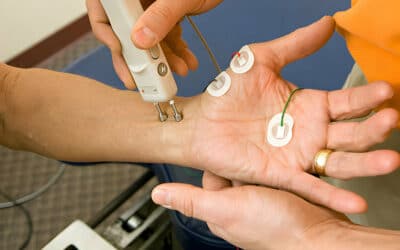Our spine has a natural curvature that supports movement, improves flexibility, and decreases pressure on our backs. When that curvature is increased and our spine is shifted, this condition is called scoliosis.
Some estimates show that six to nine million people in the US live with this affliction, and it affects 2-3% of the total global population.
So what does it do to your body, and what can you do to alleviate the symptoms? Read along to learn all about it.
What Are the Most Common Symptoms of Scoliosis?
Scoliosis usually occurs at a young age, typically between the ages of 10 and 15. However, it can onset earlier or later as well. Although boys and girls develop it at about the same levels, women usually have more severe symptoms that require treatment.
The most common symptoms of scoliosis include:
- Tilted hips
- Uneven shoulders
- Tilted or not centered head
- Asymmetric body alignment
- Back pain
Although people often seek treatment when they start experiencing back pain, some can have other symptoms without any pain or discomfort.
The Severity of Scoliosis
Doctors will diagnose you with scoliosis if your spine curvature is more than 10% off from the normal position. This amount of deviation from the standard alignment is called the Cobb angle.
The higher the Cobb angle, the more severe scoliosis is. For instance, if a person has a Cobb angle of over 40 degrees, they most likely need surgery to align the spine and prevent further deterioration.
➡Related content: Scoliosis vs. Kyphosis: Differences and Ways to Treat Them in Webster, Texas
What It Does to Your Body
Besides spine health, it can affect many other systems in your body.
- It interferes with nerve signals. When your spine curves abnormally, it compresses or stretches nerves around it. That can mess with nerve signals, causing discomfort, pain, tingling sensation in extremities, burning, or other unpleasant sensations. In more severe cases, affected nerves could lead to issues with fine motor control, limiting your ability to perform certain tasks. Rarely, it can affect bladder and bowel control.
- It can cause headaches. Pinched nerves can cause intense headaches that impair the quality of your life. In addition, when your spine curves, it becomes harder for cerebrospinal fluid to reach your brain, amplifying the intensity of your headaches.
- It affects your heart and lungs. People with severe scoliosis can have heart and lung problems because their ribs contort in weird ways when rotating their spine. That prevents lungs from fully expanding, which may interfere with people’s ability to take full deep breaths. In addition, it may affect the heart, causing it to work harder than it should, which could result in conditions like mitral valve prolapse, and premature heart failure in most severe cases.
- It can disrupt digestion. An abnormal curvature of the spine can restrict certain parts of the digestive system, limiting its effectiveness. It could lead to constipation, irritable bowel syndrome, acid reflux, nausea, and weight loss. Weight loss typically occurs because you feel full even if you don’t eat enough, and it’s also more challenging for your body to extract essential nutrients from food.
➡ Learn more about back pain treatments at Space City Pain
Treating Scoliosis at Space City Pain
First things first: if you suffer from the symptoms described above, you should see a health professional immediately. Your healthcare provider will conduct a series of tests to get the right diagnosis and exactly how severe your scoliosis is. At Space City Pain, our board-certified pain specialists are specifically trained to treat scoliosis. Additionally, at our state-of-the-art facilities you will find everything you need for your treatment.
We welcome inquiries! If you wish to learn more, please contact us online or call 281-338-4443. At Space City Pain, we are happy to address any concern and walk you through our treatments. Because we don’t manage pain, we treat it.



